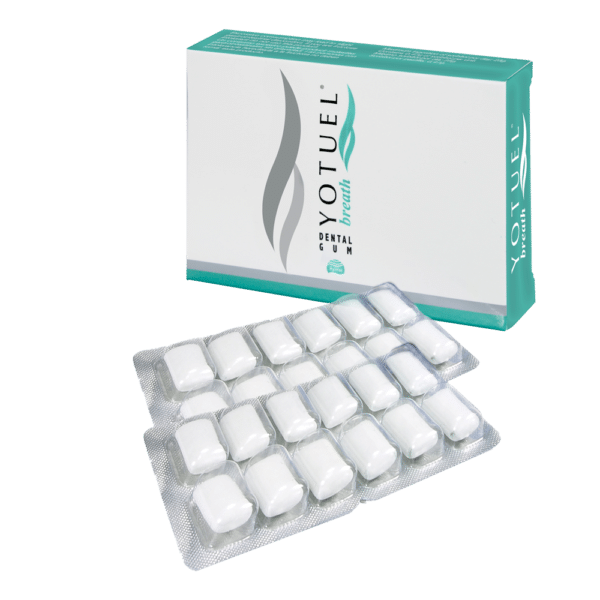Our general state of health is the result of many factors in our body, and, therefore, it is essential to understand the interconnection between the oral microbiota and the mucous membranes.
The oral microbiota is the set of bacteria and other microorganisms that live in our mouth. This complex ecosystem includes more than 2,000 different species, and a single millilitre of saliva can contain up to 100 million microorganisms.
These bacteria form communities that coexist in different areas of the mouth, such as saliva, tooth enamel, the gingival sulcus, and the mucous membranes of the tongue and cheeks.
The Relationship between the Oral Microbiota and the Mucous membranes
The oral microbiota not only affects oral health, but also has a significant impact on the mucous membranes of the body. Mucous membranes, which are the membranes that line body cavities such as the mouth, nose and throat, depend on a healthy balance of microorganisms to function properly.
Oral Health and General Health
A proper balance in the oral microbiota is essential for good oral health, which in turn promotes good general health. The oral microbiota protects the mucous membranes from pathogens and helps in the regulation of metabolic processes and the immune system.
Nasal and Oral Microbiota
The nasal microbiota is also important and although it contains different bacteria than the oral microbiota, the two are interconnected and may also influence respiratory health.
Functions of the oral microbiota
In this sense, the oral microbiota plays vital functions not only for oral health, but also for the general health of the body. These features include:
- Protection Against Pathogens: Commensal bacteria compete with pathogenic microorganisms for resources and space, helping to prevent infections. In addition, they secrete bacteriocins and other antimicrobial substances, creating a healthy ecosystem.
- Initial Digestion: Some bacteria in the mouth help in the breakdown of food and the initial digestion of carbohydrates, thus facilitating the digestive process.
- pH maintenance>: The oral microbiota helps regulate the pH of the mouth, which is crucial for preventing tooth decay and other oral diseases.
- Support of the Immune System: The oral microbiota stimulates the production of immunoglobulins and plays an anti-inflammatory role, keeping the mucosa in good condition and preventing thrush and mouth sores.
- Conversion of Nitrate to Nitrite: The oral microbiota converts nitrate from food into nitrite, an anti-inflammatory substance that also has cardiovascular benefits.
Frequently asked questions about the oral microbiota
What is the oral microbiota?
The oral microbiota is the set of microorganisms that live in the mouth, including bacteria, fungi and viruses, which form a balanced ecosystem necessary for oral and general health.
How does the oral microbiota affect general health?
The oral microbiota influences overall health by protecting against pathogens, assisting in initial digestion, maintaining oral pH, and supporting the immune system.
What factors can alter the oral microbiota?
Diet, oral hygiene, antibiotic use, stress and mental health can affect the balance of the oral microbiota.
How can I maintain a healthy oral microbiota?
Maintain good oral hygiene, eat a balanced diet, hydrate properly, reduce stress and consider using specific probiotics for oral health.
In conclusion, the relationship between the oral microbiota and the mucous membranes is vital to maintain comprehensive health.
A proper balance of microorganisms in the mouth not only prevents oral diseases, but also has a positive impact on the overall health of the body. So, don’t underestimate the power of a healthy smile!

















